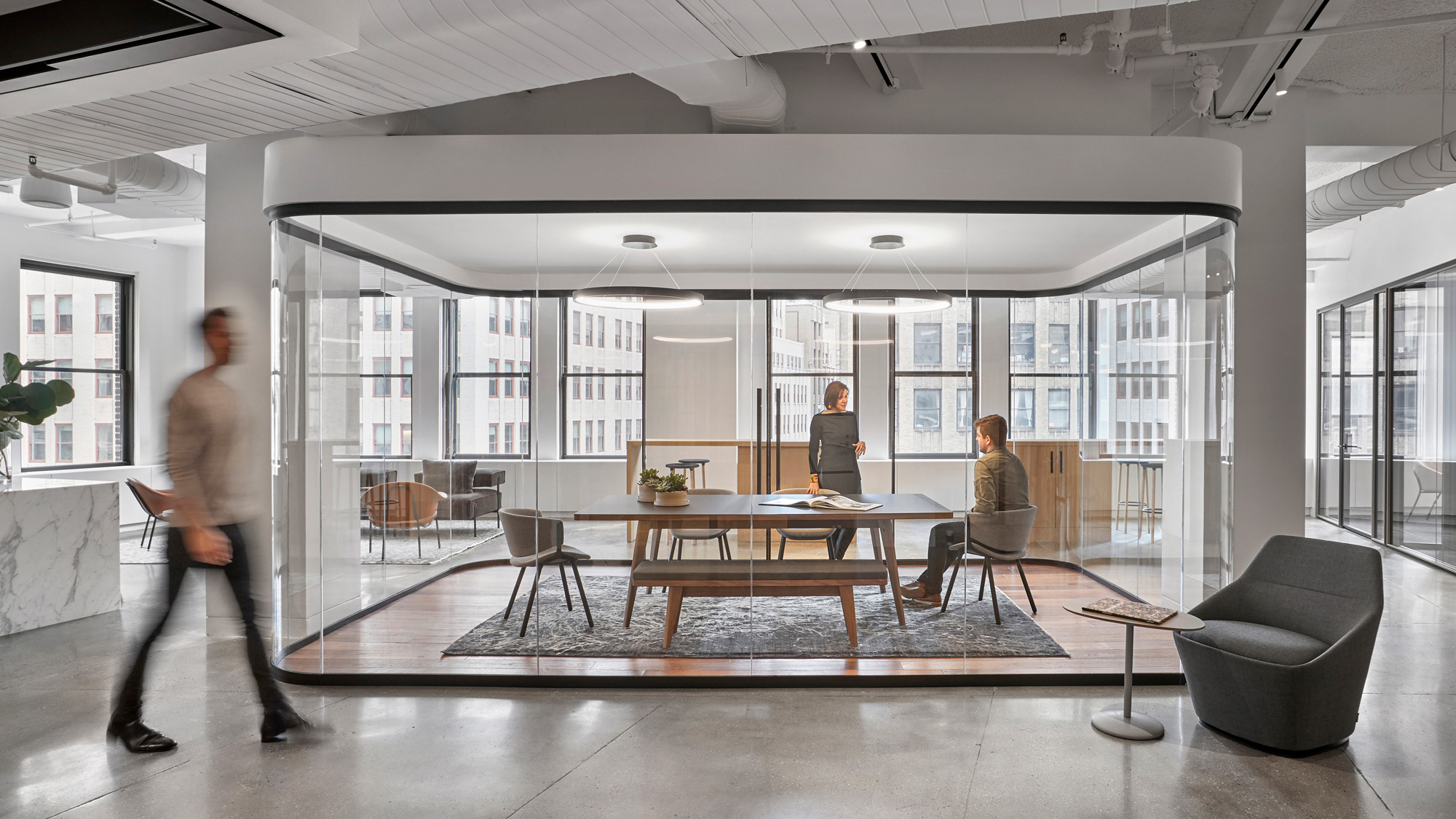How Gensler’s Product Sustainability Standards™ Are Making an Impact in the Industry
March 13, 2025 | By Sarah Templin and Peter Harrison
Editor’s Note: This blog is part of a series on the Gensler Product Sustainability (GPS) Standards. As one of the first of its kind in the industry, GPS empowers architects, manufacturers, and clients to move towards more regenerative building materials. In recognition of this open-source tool, Fast Company recently named Gensler one of 2025's Most Innovative Companies. Click here to read more about our approach to this new initiative.
In August 2023, we launched the Gensler Product Sustainability (GPS) Standards as a step toward a more circular and less carbon-intensive industry. We created these standards because we believe this is one of our most substantial opportunities for accelerating industrywide impact — we have a clear imperative mandate to drive down our embodied carbon, to align the architecture and design industry in shared sustainability standards, and to be a collaborative partner in achieving mutual environmental goals. We are also deeply committed to partnering with our clients on their embedded values — as many of them have strong sustainability and climate impact goals and the GPS Standards will help align those commitments to their corporate real estate portfolio.
We selected the holistic sustainability criteria on 12 product categories based on the carbon impact of the products’ materials and manufacturing processes, the volume we specify of that product category, and market readiness to demonstrate sustainability (through EPDs, third-party certification programs, and VOC emissions testing data, for instance).

Making a strong market signal in the materials ecosystem
A year and a half after its launch, the impact is significant across the U.S., Canada, the EU, and the U.K. We have witnessed shifts up and down the complex web of supply chains that extends from Gensler — the manufacturers who design and build the products we specify, the sub-contractors and suppliers that they work with, and the manufacturing alliances that support them have all been making moves to adjust manufacturing and materials to meet our requirements. This extends to our clients who live with these products in their built environments and to the contractors who install the products and remove them again at the end of their life cycle and return them to the circular economy through manufacturer take back programs. There is a resounding enthusiasm for a clear market signal, and we are thrilled with the buy-in we have seen across the spectrum of businesses we partner with on the projects we design.
Within weeks of launching GPS, Gensler saw industries shift in response to our new standards, and that momentum has continued. Manufacturers of some of the most well-regarded brands (particularly in highly competitive interior product markets like carpet tile and acoustic ceiling tile) that are specified by Gensler began redesigning and re-engineering their products. They focused on using alternative materials with lower carbon impacts, fine tuning their manufacturing processes to reduce energy consumption, investing in more EPDs (Environmental Product Declarations), and prioritizing the implementation of the ESG (Environmental Social Governance) reports to meet our criteria.
This is exactly the type of industry impact that we had hoped for, and a vital part of how we see our role in pushing the industry forward. Manufacturers have submitted thousands of products for GPS-compliance, and we have trained over 1,000 manufacturers and general contractors on the criteria. One furniture manufacturer reported auditing 100 subcontractors of their supply chain for GPS-compliance only to find that only two meet our standards. They are working with the others now to become compliant. Another manufacturer asked us to add their product category, fire repellant, in GPS v2.

Manufacturers have also told us that GPS provides the market support (and thereby incentive for financial investment) for more ambitious sustainability policies that they have long wanted to implement. These examples represent just a few of the dozens of positive and impactful conversations we have had since the launch of the standards.
Amplifying the impact with our clients
At the other end of the design process, we’ve heard reports of prospective and existing clients lauding our new materials approach for its streamlined research, the guidance it provides them in making smart choices with finish and building materials, and how it dovetails and compliments other existing criteria. Our GPS work builds upon the legacy of many of our deep client relationships — clients across market sectors who are leading in the realm of sustainable placemaking: prioritizing materials in their projects across their portfolio of spaces that are healthier, lower carbon, and backed by industry-recognized stringent product certifications like EPDs, HPDs (Health Product Declarations), Declare, and Cradle to Cradle.
In addition to our clients with progressive sustainability frameworks, we also know that GPS helps push forward our clients who may not be trailblazers yet but seek to have an impact. Even those who may not have sustainability at the forefront will benefit from GPS, as it becomes the norm for all the projects we deliver. We know we can continue to deliver great designs at a reduced environmental impact — those two ideas are not mutually exclusive.

Progress & change happens with deep partnership
It is important to know that these criteria are evergreen, and new or updated criteria will be released at regular intervals. This also means that our team is poised to respond to the industry and streamline the process for our designers. Success is thanks in part to the collaborative spirit of the industry, so when we hear feedback from manufacturers we listen intently.
For manufacturers who have raised questions about specific criteria, we conducted more research and, in some cases, issued a clarification or revision. (GPS v2.0 launched in January 2025 with revised criteria.)
Fewer than anticipated manufacturers of glass demountable glass partitions could meet our requirements for 50% recycled aluminum content. One said the functional quality of their aluminum was impacted. Another reported that the aesthetic qualities were impacted because that level of recycled aluminum created a mottled look that was visible through the transparent anodized coating. Yet others had no trouble meeting the requirement at all.
This warranted further investigation to ensure that our criteria were achievable to a degree that it would move the industry forward, rather than ambitious to a degree that it prevented manufacturers from complying and limited our designers’ and clients’ options. To research this further, the GPS Core Team met with six companies that manufacture demountable glass partitions, including large, small, domestic, and international companies who could meet the threshold and those who could not yet meet it, as well as their anodizers and extruded aluminum suppliers, and the Aluminum Extruders Council. We wanted to discuss their concerns or lack thereof while meeting our criterion.
These experiences are shaping our path forward. As one of the industry’s most influential firms, we are excited that we can leverage our reach to accelerate progress for our clients and industry. We know we will go further and faster in this impactful work if we continue to remain collaborative and transparent in our approach.
For media inquiries, email .

